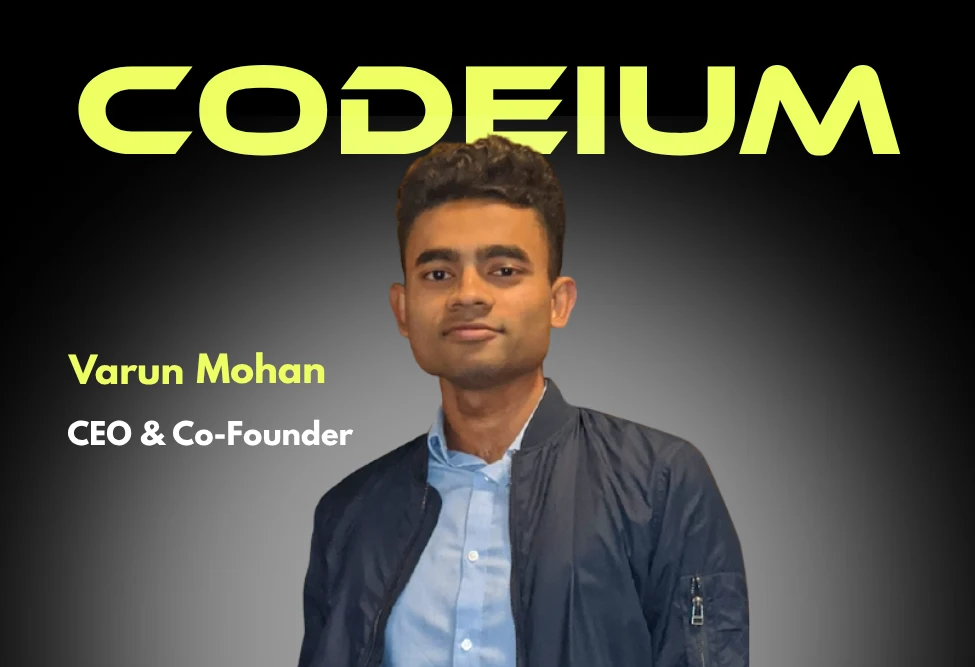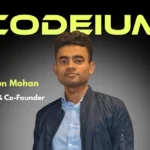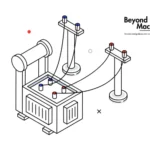Why Varun Mohan reject OpenAI? In the fast-evolving world of artificial intelligence, where billion-dollar deals are sealed in seconds, a 28-year-old Indian-origin tech visionary, Varun Mohan, made headlines by doing something unthinkable — he rejected a ₹25,000 crore ($3 billion) acquisition offer from OpenAI, choosing instead to license his breakthrough AI technology to Google for ₹20,000 crore ($2.4 billion) — and on his own terms.
📍 Who is Varun Mohan?
Born to Indian immigrant parents in Sunnyvale, California, Varun Mohan is a shining example of second-generation Indian-American brilliance. Raised in a modest middle-class family, his father worked as a software engineer — nothing flashy, just enough to provide stability and a shot at the American Dream.
From an early age, Varun showed rare sparks of genius. At The Harker School, San Jose, he made a mark by dominating math and computer science olympiads. His brilliance earned him admission to MIT (Massachusetts Institute of Technology) — where he pursued dual degrees: a Bachelor of Science in Mathematics and Computer Science, and a Master of Engineering in Computer Systems.
He graduated top of his class — a feat remarkable even by MIT’s towering standards.
💡 The Making of a Tech Visionary
Between 2014 and 2017, Varun’s academic life revolved around distributed computing, operating systems, machine learning, and algorithm optimization. But he didn’t stop at theory. He took his ideas into the real world, interning at global giants such as Samsung, LinkedIn, Cloudera, Quora, and Databricks, and later spent three years at Nuro, the autonomous vehicle startup, where he rose to become Tech Lead Manager for Autonomy Infrastructure.
But Varun wasn’t content being just another engineer in the Valley. He had a bigger dream — to revolutionize the way software is written.
🚀 The Birth of Windsurf (formerly Codeium)
In June 2021, Varun Mohan teamed up with MIT friend Douglas Chen to secretly build Codeium — later rebranded as Windsurf — a next-gen AI-powered code generation platform. Their mission: to eliminate the friction in software development by building AI agents that could write code using natural language prompts.
Their breakthrough product, Cascade, quickly gained traction, with over 1 million developers using the platform in just four months.
By 2023, Windsurf had raised over $150 million in Series-B funding and achieved a $1.25 billion valuation, becoming one of the fastest-growing AI infrastructure startups globally.
🧠 Why Varun Mohan reject OpenAI ?
In mid-2025, OpenAI came knocking with a $3 billion acquisition offer. The deal was almost finalized — Varun was a signature away from history. But when Microsoft, OpenAI’s major backer and creator of GitHub Copilot, raised concerns over potential conflict, Varun took a step back.
He wasn’t just building a company. He was building a philosophy of independence.
“They would’ve watered it down, compromised its vision,” Varun was quoted as saying. “To me, freedom to build matters more than valuation.”
🤝 Google Steps In With a Game-Changing Deal
Sundar Pichai saw an opportunity. Google DeepMind offered Windsurf a non-exclusive licensing deal worth ₹20,000 crore ($2.4 billion) — allowing Varun to retain full ownership of Windsurf, continue as CEO, and operate independently. Google gained access to Cascade’s AI infrastructure to supercharge its Gemini project, while Varun retained full creative control.
This was not just a business deal — it was a technology and talent partnership.
🌍 The Broader Impact: Indian Talent on the Global AI Map
Varun Mohan’s journey reflects a larger narrative — the rise of second-generation Indian innovators in Silicon Valley. With strong academic roots and a global vision, they are rewriting the rules of tech entrepreneurship.
His decision sends a powerful message: You don’t have to sell your dreams for a price tag — especially if your vision is greater than any valuation.
Today, at just 28, Varun Mohan is a billionaire, a global tech leader, and a symbol of what brilliance combined with courage can achieve.
🔍 What Makes Varun Mohan’s Story Unique (and Inspiring)
✅ He built a billion-dollar company before 30.
✅ He rejected a $3B buyout to stay true to his vision.
✅ He championed open developer ecosystems over monopolistic control.
✅ He showed the world that intellectual freedom > acquisition price.
✅ He proved that genius doesn’t need to come from IITs, NITs, or IIMs — it needs passion, persistence, and purpose.
✨ Final Thoughts
In a world that often chases unicorn valuations and exits, Varun Mohan chose something rarer — independence with impact. As he continues to push the boundaries of AI infrastructure and software development, one thing is clear — he’s just getting started.
If you’re an aspiring entrepreneur or engineer, take note:
The future belongs to those bold enough to build it — not just sell it.









